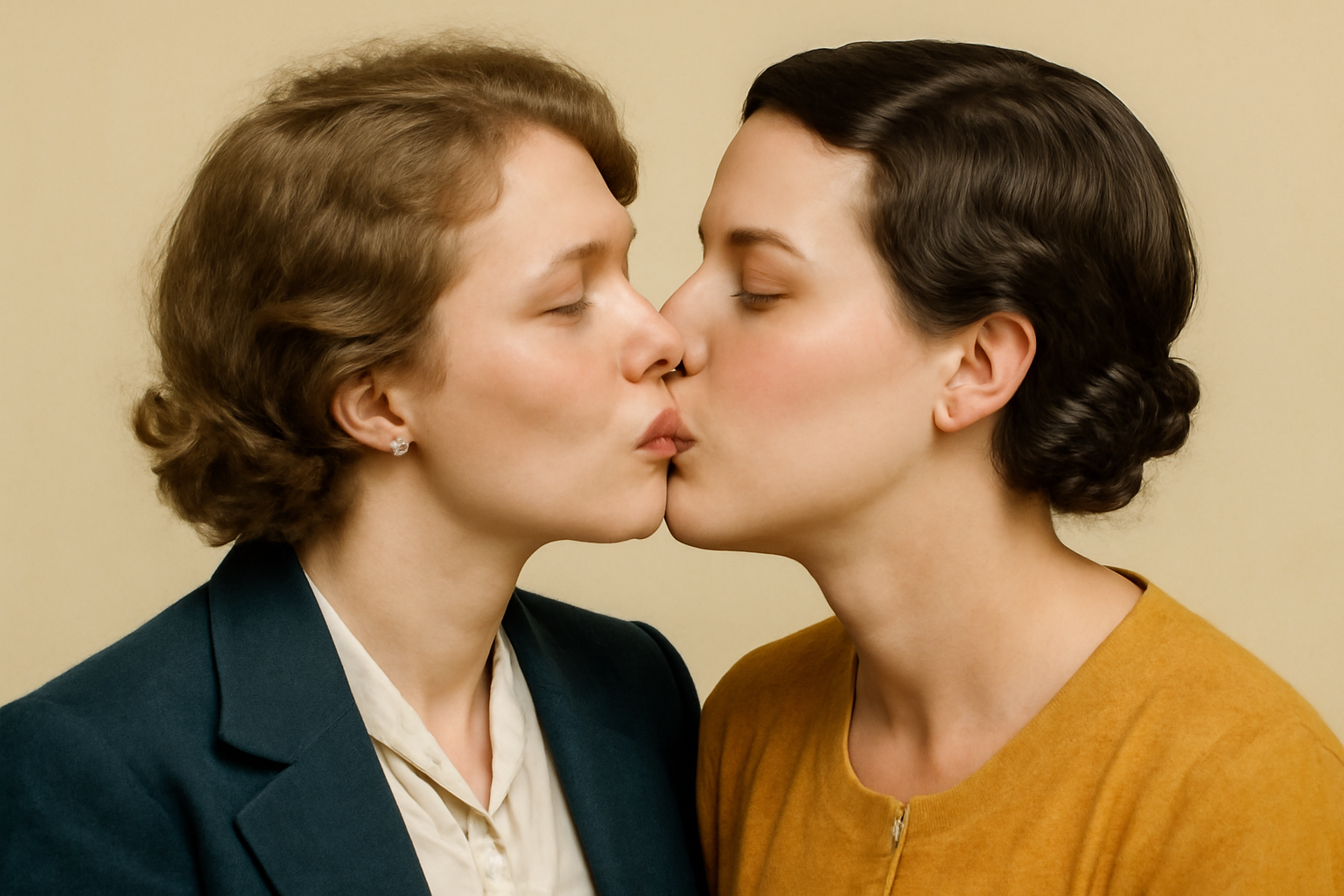
This LGBTQ+ History Month offers a fascinating look back over a century to examine a peculiar episode in British history: the attempt to make lesbianism illegal in the 1920s and the unexpected reasons behind its failure.
In August of 1921, a period marked by post-war challenges such as the ongoing Irish War of Independence ceasefire talks, skyrocketing unemployment, and the lingering effects of wartime rationing, the British Parliament was focused on a seemingly unrelated issue: the criminalization of lesbianism.
The legal landscape at the time included the Criminal Law Amendment Act of 1885, which criminalized "gross indecency" between men, and the Offences against the Person Act of 1861, which punished "buggery" with severe penalties. These laws were vague enough to encompass a wide range of intimate acts and had been used to convict notable figures such as Oscar Wilde and, later, Alan Turing.
A Proposal to Expand the Law
By 1921, some members of government realized that women engaged in similar acts were not equally subject to these draconian laws. Consequently, MPs introduced a bill to extend the scope of "gross indecency" to include acts between women, proposing a new clause titled "acts of indecency by females."
This proposed legislation stated, "Any act of gross indecency between female persons shall be a misdemeanour, and punishable in the same manner as any such act committed by male persons under section 11 of the Criminal Law Amendment Act, 1885."
The Lords Debate
The bill progressed to the House of Lords, where it was swiftly rejected—but not for the reasons one might anticipate. The Lords were concerned that criminalizing lesbianism could inadvertently lead to an increase in such relationships. They feared that "feeble-minded" women might be tempted to try something they had never considered, simply because it was forbidden.
The debate began with James Harris, the fifth Earl of Malmesbury, expressing his discomfort with the subject, which he described as "a most disgusting and polluting subject." Despite this, he warned that legislating against lesbianism could do "more harm than good." He argued that such a law would likely lead to increased blackmail against women who shared beds for non-sexual reasons, such as companionship or protection.
He also believed that criminalizing lesbian relationships would only serve to increase their number. "We all know that vice has been increasing partly owing to the nervous conditions following on the war," Harris argued, reflecting a sentiment that societal disruption led to moral decay.
The Great Debate on Moral Panic
Other Lords shared this perspective. Hamilton John Agmondesham Cuffe, the Earl of Desart, suggested that discussing such topics could plant ideas in the minds of those who might otherwise be unaware of them. He acknowledged that lesbians indeed existed but cautioned against making such "horrors" public knowledge, fearing it would incite "hysterical" reactions.
Frederick Edwin Smith, Lord Chancellor and first Earl of Birkenhead, echoed these sentiments, asserting that the majority of women in Britain had never heard of lesbianism. He posited that of every 1,000 women, 999 were oblivious to such practices.
An Unintended Outcome
The bill was ultimately rejected, and the decision inadvertently ensured that lesbian relationships continued largely undisturbed by legal persecution. The House of Lords, in their paternalistic intent to "protect" women from moral corruption, ended up safeguarding the right of women to love one another without fear of legal repercussion.
This extraordinary episode highlights the complexities and contradictions of early 20th-century moral and legal thought, revealing how fear and misunderstanding can sometimes protect rather than harm. As we reflect on these events during LGBTQ+ History Month, we can appreciate the irony and relief that this legislative effort was abandoned, allowing future generations of queer women to live more freely.
Related Posts
Triumphant Trans Woman Wins Legal Battle and Inspires Others to Stand Up for Their Rights
Breaking new ground: a landmark victory in transgender rights After battling in courtrooms and enduring endless challenges, Diana Portillo, a transgender woman, has secured a monumental victory in her decade-long fight against workplace discrimination. The result? Nearly $1 million awarded in a historic settlement. But this isn't just a win on paper—it represents a powerful precedent in combati [...]
Pride Month in Latin America: Protests and Demands for Equality
**Celebrating Pride and advocating LGBTQ+ rights in Latin America** Pride Month in Latin America was a lively mix where celebration met activism. Communities united, not just throwing a party but making a stand—demanding equality and pushing governments toward better protection and rights recognition. Throughout Latin America, pride events erupted in marches and cultural displays, each with a c [...]
Transgender Erasure Actions Implemented by National Park Service
```html Trump administration's impact on national park service and transgender recognition The Trump administration made notable moves in undermining transgender representation, which included directing agencies like National Park Service not include "T" and "Q" when they refered “LGBTQ” in any official communication. This move seems part a broader plan by this administration aimed at reducin [...]